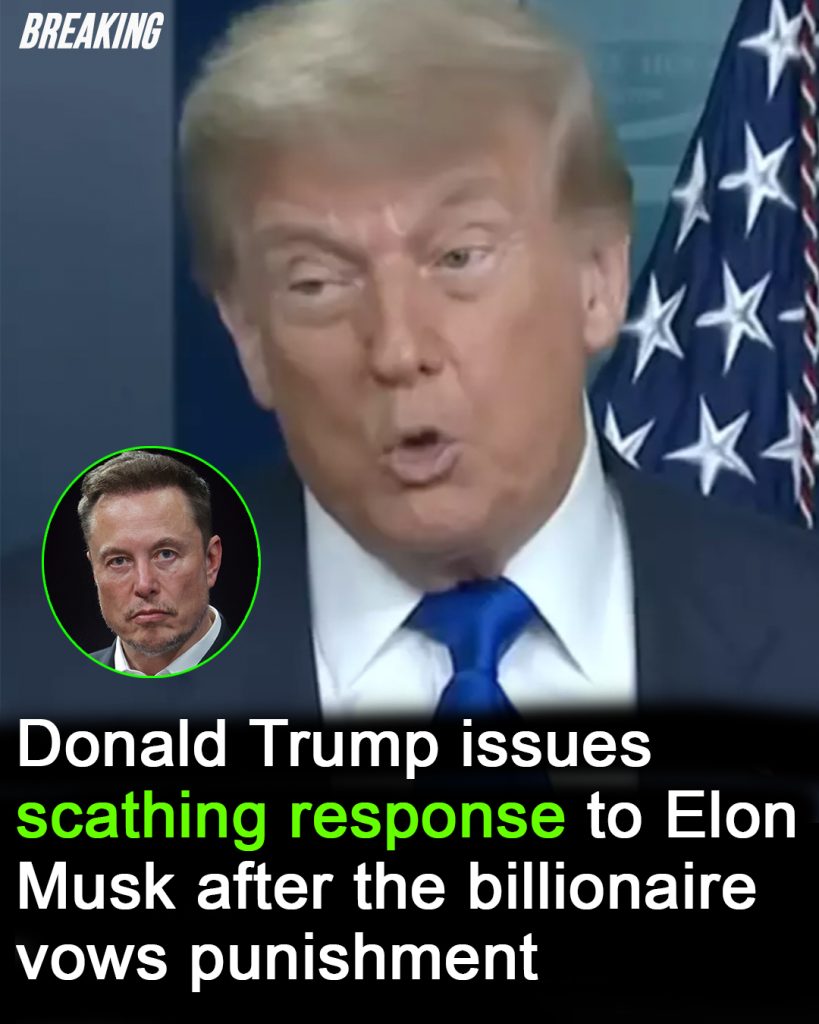Elon Musk has intensified his verbal clash with Donald Trump, launching a scathing critique of the former president’s massive new spending bill and promising political consequences for lawmakers who support it.
On Sunday, June 30, Musk—who is currently serving as a “special government employee” focused on cutting federal expenses—took to his platform, X (formerly Twitter), to sharply criticize Republican lawmakers backing the nearly 1,000-page bill now moving through the U.S. Senate. The legislation, a key element of Trump’s revived policy platform, features sweeping increases in defense spending—including funding for a proposed “Golden Dome” missile defense shield—alongside extensive tax breaks and a range of spending provisions that have drawn strong criticism from fiscal conservatives. According to Reuters, the bill is expected to add a staggering \$3.3 trillion to the national debt, which already sits at \$36.2 trillion.

“Anyone who campaigned on the PROMISE of REDUCING SPENDING but votes for the BIGGEST DEBT ceiling increase in HISTORY will see their face on this poster in the primary next year,” Musk declared in a sharply worded post on X, sharing an image resembling a “wanted” poster meant to publicly shame politicians who support the measure.
Musk’s comments sparked an immediate response from Trump, who had recently praised the tech mogul as a “wonderful” and “smart” individual during an interview on Fox News. Taking to his platform, Truth Social, Trump pushed back hard.
“Elon Musk knew long before he so strongly Endorsed me for President that I have always been firmly opposed to the Electric Vehicle Mandate,” Trump wrote. “It’s ridiculous and has always been a central issue in my campaign. Electric vehicles are fine, but Americans shouldn’t be forced to drive them.”
Trump didn’t stop there. In a post that quickly gained traction online, he turned his attention to Musk’s business empire, accusing the Tesla and SpaceX CEO of depending heavily on government subsidies. Citing reporting from Al Jazeera, Trump wrote, “Elon may have received more government subsidies than any other person in history, by far. Without those subsidies, he’d probably have to shut everything down and go back to South Africa. No more rocket launches, no more satellites, no more electric cars. And the country would save a FORTUNE.”
He closed the post with a mocking jab, adding, “Maybe we should have DOGE take a good, hard look at this? BIG MONEY TO BE SAVED!!!”
Musk, known for his no-holds-barred approach to public discourse, wasted no time in responding. “I am literally saying CUT IT ALL. Now,” he wrote on X, signaling not just criticism of Trump’s bill, but a broader rejection of government overspending in all forms.
The growing feud marks a sharp turn in what was once a warm relationship between the two figures. At one point, Musk had referred to Trump as his “first buddy” in Washington, a nod to the mutual admiration that seemed to define their early alliance. But as disagreements over fiscal policy, government subsidies, and energy priorities have come to the fore, the alliance has fractured—perhaps irreparably.
The Senate’s debate over the bill remains ongoing. Lawmakers face a tight 20-hour window to propose amendments before a final vote can proceed. Even if the bill passes the Senate, it must return to the House of Representatives, where it previously scraped through by a single vote.
Meanwhile, Trump is going all-in on selling the bill to his conservative base. In a series of Truth Social posts, he has framed the legislation as a historic achievement.
“Republicans, the One Big Beautiful Bill—perhaps the greatest and most important of its kind—offers the largest tax cuts and border security enhancements ever,” Trump claimed. “It means millions of jobs, more support for our military and veterans, and so much more. Failure to pass it means a 68% tax increase, the biggest in history!!!”
But Musk isn’t convinced. He remains skeptical of the bill’s long-term impact and has begun signaling support for a broader political upheaval. In a pointed post shared by The Guardian, Musk said, “It is obvious with the insane spending in this bill, which raises the debt ceiling by a record FIVE TRILLION DOLLARS, that we are living in a one-party country—the PORKY PIG PARTY! Time for a new political party that actually cares about the people.”
It’s unclear whether Musk is seriously considering launching or backing a new political movement, or if he’s simply venting frustration on social media. Either way, the message is clear: he’s done playing nice.
The once-promising alliance between Musk and Trump has now morphed into a full-blown rivalry, centered on divergent visions for America’s financial future. While Trump continues to pitch himself as a pragmatic dealmaker fighting for jobs, defense, and tax cuts, Musk is adopting the role of a fiscal purist, calling for radical cuts across the board—even if that includes slashing programs his own businesses have benefited from.
This ideological split reflects broader tensions within the Republican Party. On one side are populist voices, like Trump, advocating for big-ticket spending initiatives aimed at boosting infrastructure, defense, and domestic production. On the other side are tech-driven libertarians, like Musk, pushing for limited government and aggressive debt reduction.
The result is a political clash that could reshape the GOP ahead of the 2026 midterms and the 2028 presidential race. With both men wielding enormous influence and loyal followings, the stakes are high.
Whether Musk’s rhetoric evolves into tangible political action remains to be seen. But for now, his promise of “revenge” against lawmakers who vote for the bill, and his call for a new political party, suggest that the battle over federal spending is far from over.
The bromance between Trump and Musk is not just cooling—it’s collapsing. And the unfolding drama is more than a personal spat; it’s a vivid reflection of the broader fight for the soul of the Republican Party and the future of American governance.





